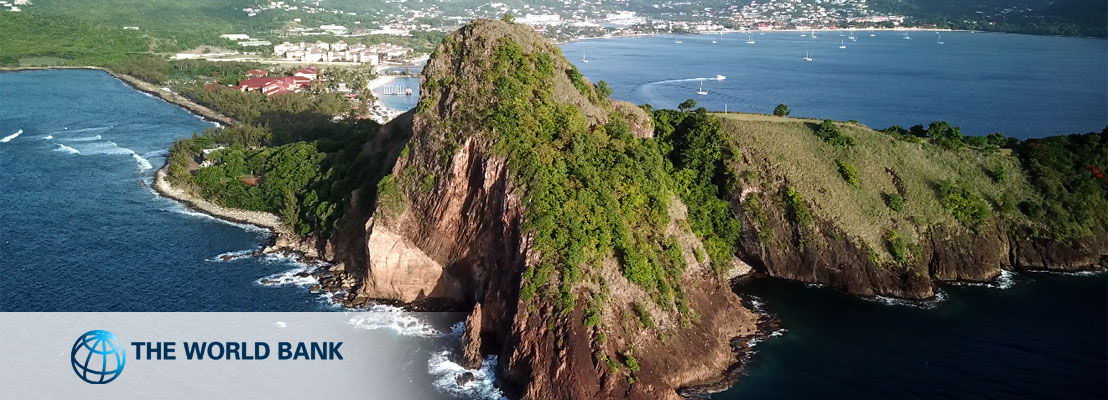The OECS Lauded For ‘People-Centred’ Development
Media Release
The Organisation of Eastern Caribbean States (OECS) has been lauded by a key partner —Dillon Consulting— for making stakeholder engagement a key component of its development initiatives. The consulting firm recently developed Coastal Master Plans and Marine Spatial Plans for five OECS Member States under the Caribbean Regional Oceanscape Project (CROP).
Michel Frojmovic, Social Safeguards Specialist with Dillon Consulting, commended the OECS for its people-led approach to development. He said the OECS is a model of a ‘people-centred’ approach to development.
“From the point of view of building-in specific mechanisms to engage with a wide range of stakeholders, it rates very high. Stakeholder consultation was defined explicitly at the point of asking for proposals from various consultants, and OECS in particular has been very strong about ensuring that the Consultation occurs, even with big challenges like COVID. So it has been very impressive in being designed to achieve precisely that goal. The proof will be in the pudding over the next 15 years as it gets implemented, but what we’ve seen over two years in developing CROP and implementing it during its lifespan, the role of consultation has been front and centre in terms of a key project component.”
CROP is funded by the Global Environment Facility through the World Bank. Because of the World Bank’s Policy on Social Safeguards, a Grievance Redress Mechanism (GRM) was developed through which people and communities affected by the project can raise concerns. The GRM allows for receipt of concerns, addressing them, and informing on their status.
Michel Frojmovic said the Grievance Redress Mechanism is an essential tool in ensuring that persons have trust in the Project.
“I am an Urban Planner by profession, as was explained earlier, and integral to the profession of Planning are elements of consultation and transparency. The GRM plays both of those roles. It is an essential tool in ensuring that people have trust in a project. If you don’t have the trust of stakeholders, they are not going to engage, and your project has a much higher likelihood of failure. So knowing that there is a mechanism for expressing frustrations or concerns is essential, and of course it plays a very transparent function in the project, including the fact that if individuals want to know more, the GRM is meant to be a vehicle for exploring more about the project that you feel is not being shared with you. So transparency and trust and accountability in governance, are essential tools, and GRM helps satisfy those.”
During the lifespan of CROP, no negative impacts are expected to arise, given that the Project is not undertaking any work on the ground. However, post CROP and during implementation of recommendations emanating from the Project, impacts that need mitigating may arise. It is thus expected that Member States will establish suitable Grievance Redress Mechanisms to allow persons to raise any concerns and have them addressed.
The CROP Grievance Redress Mechanism can be accessed at oecs.org/grievance-redress. In addition, any person or group not satisfied with the manner in which a grievance was handled, can appeal to:
Appeal: Grievance Redress Outcome
Head - Portfolio Management Unit
Commission, Organisation of Eastern Caribbean States
Morne Fortune, P.O. Box 179
Castries, Saint Lucia
Email: grievanceappeal@oecs.int


